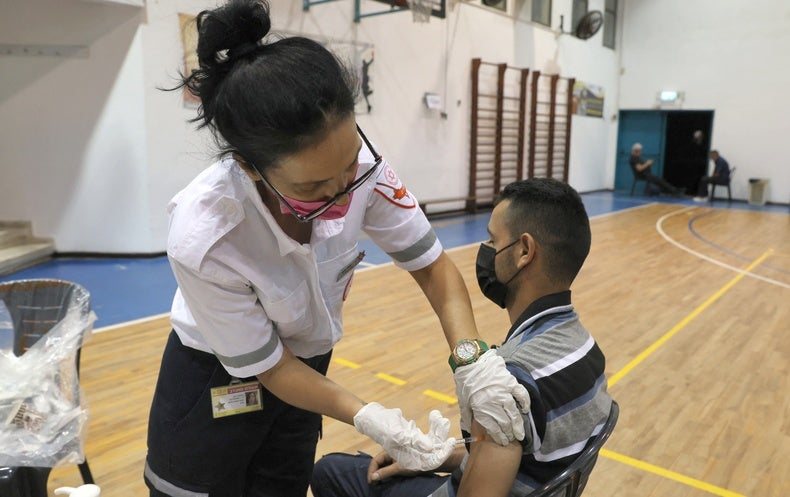A highly anticipated study showed that older Israelis who received the third dose of COVID-19 vaccination tested positive for SARS-CoV-2 or had severe COVID compared to Israelis who received only two injections -19 is much less likely to be released on September 15.
The standard protocol for a messenger RNA-based COVID-19 vaccine is two doses, but some governments, including Israel, have already started the third “boost” injection. The latest study evaluated 1.1 million Israelis over the age of 60 who had received the first two injections at least five months ago. Twelve days or more after receiving the third jab, participants are 19.5 times less likely to have severe COVID-19 than those in the same age group who had only received two jabs and were under the study in a similar period of time .
“This is a very powerful result,” said Susan Ellenberg, a biostatistician at the University of Pennsylvania in Philadelphia, adding that this data may be the most powerful support booster data she has seen.But the potential bias in the data makes some scientists do not believe that all populations need boosters-and the data does not eliminate the Vaccine fairness When billions of people are still waiting for their first stimulus.
Israel started vaccinating its population very early, and in July it began to provide a third dose of Pfizer-BioNTech vaccine to people 60 years and older. The latest analysis associates the third injection not only with a significant reduction in severe COVID-19, but also with a 11.3 times reduction in SARS-CoV-2 infection.
But Allie Murray, an epidemiologist at Boston University in Massachusetts, warns that observational studies like this analysis can contain biases that are difficult to identify and explain. For example, people registered for booster injections may have a different risk of COVID-19 or behave differently than people who have not received the third injection.
Ehrenberg said the author tried to address some of these potential biases. She said that even though not all prejudice has been eliminated, the extent of the impact shows that boosters provide some protection at least in the short term. The author of the study could not be contacted before publication.
Global impact
The results of the survey were released when many rich countries were considering providing boosters. An advisory committee of the U.S. Food and Drug Administration (FDA) will discuss Pfizer’s application to supply boosters in the United States on September 17. An author of the Israeli study will submit data to the committee.
Murray believes that potential bias in the data and insufficient evidence of weakened immunity after vaccination means that the latest findings do not indicate a “strong demand” for boosters. “From a public health perspective, getting more people vaccinated is more influential than increasing the effectiveness of vaccines for people who have already been vaccinated by a few percentage points,” she said.
Murray is not the only one who found that Israel’s results were insufficient to justify the booster. On September 13, a comment made by a team of two senior FDA scientists cited a preprint of the study and pointed out that the short-term protection recorded by Israel “does not necessarily mean worthwhile long-term benefits.”
According to Dvir Aran, a biomedical data scientist at the Technion-Israel Institute of Technology in Haifa, Israel has deployed boosters to stop the spread of young people and prevent serious illness and death among the elderly.
“Is this the best way? Will the two-week blockade produce similar results, I cannot answer this question,” he said. “But this is an interesting way to try to prevent such an outbreak through vaccination.”
This article is reproduced with authorization and has been First published September 16, 2021.
